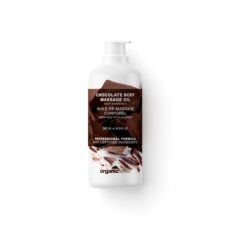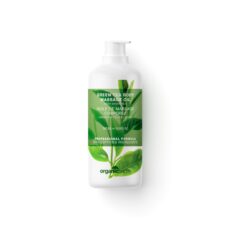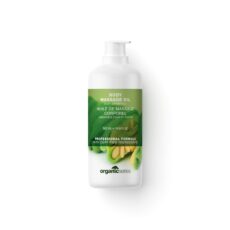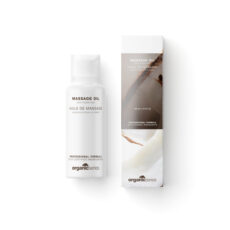Regular vs organic massage oil
Organic massage oil: Massage oils play a crucial role in enhancing the benefits of a massage by reducing friction, moisturizing the skin, and providing therapeutic benefits. With the increasing popularity of organic products, many people are curious about the differences between regular and organic massage oils. Understanding these differences can help you make an informed choice for your wellness and skincare needs. Here are 16 fascinating facts about regular vs. organic massage oil.
1. Ingredient Source
One of the primary differences between regular and organic massage oils is the source of their ingredients.
Detailed Explanation:
- Regular Massage Oils: These often contain ingredients derived from conventionally grown plants that may be treated with synthetic fertilizers and pesticides.
- Organic Massage Oils: Organic oils are sourced from plants grown without the use of synthetic chemicals, ensuring a purer and more natural product.
2. Chemical Exposure
The level of chemical exposure in regular and organic massage oils varies significantly.
Detailed Explanation:
- Regular Massage Oils: They may contain residues of pesticides, herbicides, and other chemicals used in conventional farming practices.
- Organic Massage Oils: Free from synthetic chemicals, organic oils reduce the risk of skin irritation and other adverse reactions caused by chemical residues.
3. Environmental Impact
The environmental impact of producing regular and organic massage oils differs greatly.
Detailed Explanation:
- Regular Massage Oils: The conventional farming methods used to produce ingredients for these oils often contribute to soil degradation, water pollution, and loss of biodiversity.
- Organic Massage Oils: Organic farming practices promote soil health, reduce water contamination, and support biodiversity, making them more environmentally friendly.
4. Nutrient Content
The nutrient content of regular and organic massage oils can vary.
Detailed Explanation:
- Regular Massage Oils: They may contain fewer nutrients due to the use of chemical fertilizers and processing methods that strip away beneficial compounds.
- Organic Massage Oils: Rich in natural nutrients, organic oils retain more vitamins, minerals, and antioxidants, offering better skincare benefits.
5. Skin Sensitivity
Organic and regular massage oils can affect sensitive skin differently.
Detailed Explanation:
- Regular Massage Oils: The presence of synthetic fragrances and preservatives in these oils can cause irritation, especially for those with sensitive skin.
- Organic Massage Oils: Typically free from synthetic additives, organic oils are gentler on the skin and less likely to cause irritation.
6. Therapeutic Benefits
The therapeutic benefits of regular and organic massage oils can differ due to their ingredient quality.
Detailed Explanation:
- Regular Massage Oils: They may not offer the same level of therapeutic benefits due to the potential presence of chemical residues and lower nutrient content.
- Organic Massage Oils: The higher quality and purity of ingredients in organic oils enhance their therapeutic properties, providing more effective relaxation and healing.
7. Fragrance Quality
The fragrance quality of regular and organic massage oils is notably different.
Detailed Explanation:
- Regular Massage Oils: Often contain synthetic fragrances that can smell artificial and may cause allergic reactions.
- Organic Massage Oils: Use natural essential oils for fragrance, providing a more authentic, pleasant scent that also offers aromatherapy benefits.
8. Absorption Rate
The absorption rate of massage oils impacts their effectiveness during a massage.
Detailed Explanation:
- Regular Massage Oils: May contain mineral oils or synthetic ingredients that sit on the skin’s surface, providing less effective absorption.
- Organic Massage Oils: Typically made with natural plant oils that absorb better into the skin, enhancing the massage experience and delivering nutrients more effectively.
9. Price Point
The cost of regular vs. organic massage oils can vary.
Detailed Explanation:
- Regular Massage Oils: Generally more affordable due to cheaper production costs and the use of synthetic additives.
- Organic Massage Oils: Often more expensive, reflecting the higher costs of organic farming practices and the use of high-quality, natural ingredients.
10. Certification and Labels
Certification and labeling are important indicators of product quality and safety.
Detailed Explanation:
- Regular Massage Oils: May not have specific certifications, and ingredient transparency can vary widely.
- Organic Massage Oils: Often carry certifications like USDA Organic or Ecocert, providing assurance of their organic status and ingredient quality.
11. Shelf Life
The shelf life of regular and organic massage oils can differ due to their composition.
Detailed Explanation:
- Regular Massage Oils: Synthetic preservatives can extend shelf life, but these chemicals may have adverse effects on the skin.
- Organic Massage Oils: May have a shorter shelf life due to the absence of synthetic preservatives, but they are safer and healthier for the skin.
12. Overall Skin Health
The impact on overall skin health varies between regular and organic massage oils.
Detailed Explanation:
- Regular Massage Oils: The potential presence of chemical additives can disrupt the skin’s natural balance, leading to dryness or irritation.
- Organic Massage Oils: Rich in natural oils and nutrients, organic options nourish the skin, maintaining its health and vitality.
13. Aromatherapy Benefits
The potential for aromatherapy benefits differs between the two types of massage oils.
Detailed Explanation:
- Regular Massage Oils: Synthetic fragrances in these oils may not provide genuine aromatherapy benefits and can sometimes cause headaches or allergic reactions.
- Organic Massage Oils: Use pure essential oils that offer true aromatherapy benefits, promoting relaxation, stress relief, and emotional well-being.
14. Consumer Health
Consumer health considerations are paramount when choosing between regular and organic massage oils.
Detailed Explanation:
- Regular Massage Oils: Potential exposure to synthetic chemicals and allergens can pose health risks over time.
- Organic Massage Oils: Offer a safer alternative, minimizing exposure to harmful chemicals and supporting overall health and well-being.
Conclusion
Choosing between regular and organic massage oils involves considering various factors, including ingredient source, chemical exposure, environmental impact, nutrient content, and potential health benefits. Organic massage oils, with their natural and environmentally friendly ingredients, provide superior skincare and therapeutic benefits while being gentler on the skin and safer for overall health. Whether for professional use or personal relaxation, opting for organic massage oils can enhance your massage experience and contribute to a healthier lifestyle.
Expert recommendation
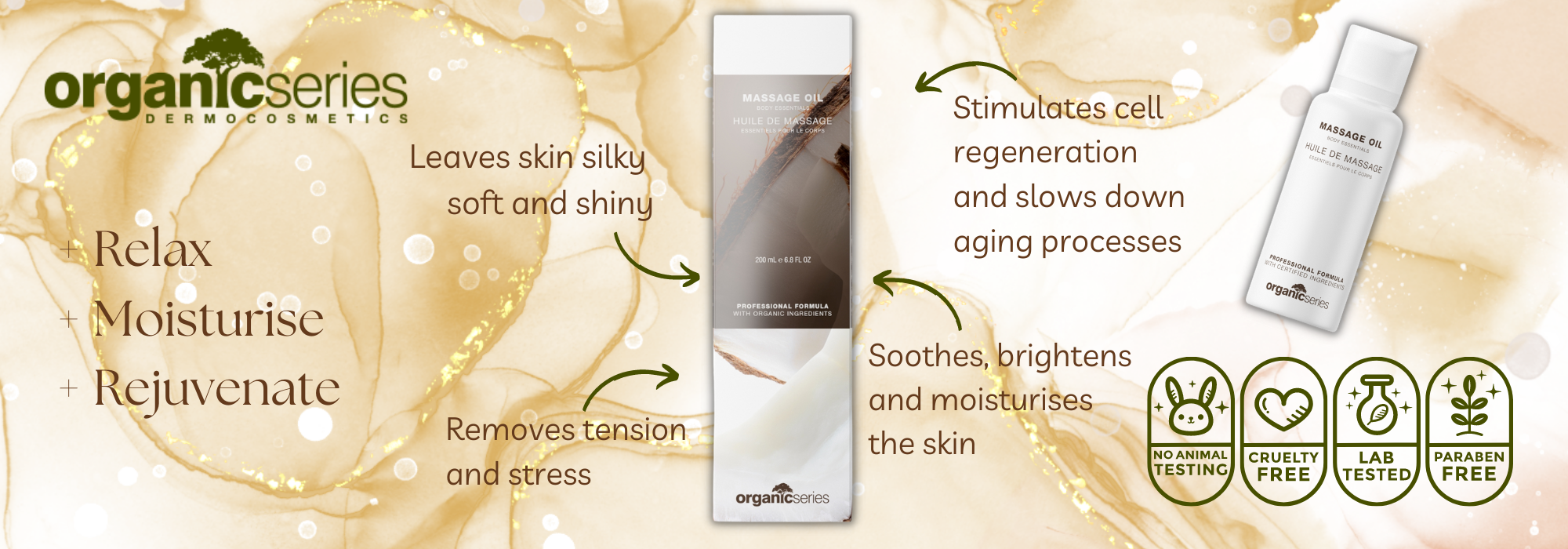
The Organic Series therapeutic Premium Body Organic Massage Oil has all the natural ingredients you need to rejuvenate your skin and bring back its moisture. Filled with natural oils and Vitamin E, this oil will soothe and brighten your skin, and reduce soreness and stress from your tense muscles.
Regular use of the Premium Body Organic Massage Oil will help you in attaining healthy, toned and moisturised skin that looks young and is protected from external factors.
Benefits
- Removes all the tension and stress from the skin.
- Protect the skin from harmful UV rays.
- Soothes, brightens and moisturises the skin.
- Stimulates cell regeneration and slows down the aging process.
- Fight free radicals and reduce transepidermal water loss
Suitable for
All of our organic massage oils are suitable for all skin types, all genders and all ages.
More inspiration
Follow Organic Series UK on instagram and facebook for more inspiration, expert tips and special discount codes!
Organic Massage Oil By Organic Series

Maria
Cosmetic Chemist
Maria
All Author Posts


